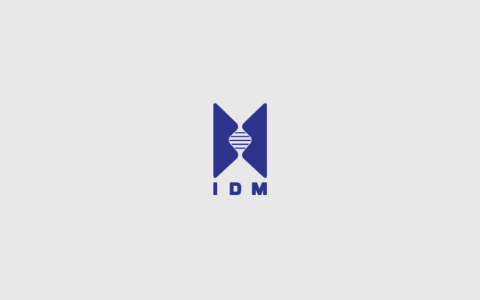Survival, perfectly describes the Western Balkans region these days. Namely, the last group of post-communist countries (Albania, Kosovo, Macedonia, Serbia, Montenegro and Bosnia & Herzegovina) which are struggling to survive in the waiting room to joining the European Union’s “club of democracies”.
The discourse about think tanks’ development and impact is inseparable from the debate on democracy and democratic societies. As part of the civil society, think tanks operate in a policy environment that has the public good as its ultimate beneficiary. The stronger the ties of think tanks/civil society and the public, the greater the guarantees of democracy.
Since the ‘stabilisation’ of the region from the conflicts of the 1990s, civil society and the public have often denounced and vigorously opposed the various threats to democracy in the first decade of the new millennium. This was sometimes a result of the tangible hope of joining EU sooner. The memory of recent history too, drove strong-willed citizens to defend their rights. Oftentimes it was owed to the support and pressure coming from (Western) “internationals”. Whatever the reason, spirited resistance and the hope for change were in plain sight; until recently.
Divided societies in many Western Balkans countries are now increasingly falling for, or are at least left without an alternative, to populist politics. Seemingly democratic systems have cemented the position of the Balkan Prince, as described by Florian Bieber two years ago. Yet, the new rulers look more appealing and palatable than the openly authoritarian leaders of the 1990s. They don’t always use censorship overtly; rather they let “you come up with the idea” of self-censorship. They don’t rule out public consultations; they choose instead who to invite to joinpublic consultations. They don’t prosecute journalists; rather, journalists are fired by the owners of the media (who do business with rulers). They don’t object civil society; they define the civic space and the “real CSOs” label. They don’t confront debates and real-life problems; instead they tweet photos of “life according to them”. They would nicely thank you for your research findings, but pursue policies based on “alternate facts”. They are not isolated or boycotted by ‘internationals’, because the Balkans can always cause more problems.
It is no surprise that over the past few years, thousands of youngsters have fled the region towards EU countries. Those who remained appear to be silent to the rulers’ truth: corruption is not a fact, but a perception advertised by political opponents or state enemies; foreign agents are trying to destroy our identity and democracy, who needs journalists if you can read my tweets?;what is the use of research if findings are not based on my “facts”; etcetera.
A very difficult context, partly the consequence of think tanks’ own actions
This context, and the “divided West”, have brought about difficult times for an independent think tank to survive in the Western Balkans. We have long suffered of underdeveloped capacities, poor culture of evidence-based policies among decision-makers, and an inconsistent approach by donors to develop think tanks as source of independent policy alternative. Now, we also have to deal with shrinking civic space, controlled media, silenced or departed intelligentsia and the rise of populism. Within a few years, independent think tanks lost their main audience (the public), their “clients” (policymakers – because policymakers have their favorite think tanks or advisers), and their partners (the media).
Soon, many of us may lose some donors, too, for many different reasons: some donors may be labelled as “enemies of the state”; others may prefer experienced consultancies than “peevish” think tanks; and some may just buy the government’s tales that such and such think tank has a political agenda or is being used to parachute their own people into politics. Truth be told, some of us in the think tank sector really did so in the past. Who’d blame donors for believing governments?
All of this is seriously impacting on our work. Many of us in think tanks saw this coming and yet, we kept making the usual mistakes. Here are some:
- We tailored ideas as per funding requests, promising impact, and hoped for it within 1 year;
- We overrated the cooperative approach with policymakers for fast-delivery of results on paper but not in practice;
- We underestimated the confrontational approach with them which would have endowed us with credibility and more partners with deeper roots in the society;
- We linked with communities of researchers to produce reports, but didn’t “bond” enough with activists to push implementation of our evidence-based advise;
- We used the media to publish our research and ideas, but not to become opinion-shapers;
- We saw social media as an alternative to the (now captured) traditional media and again we forgot that it is not enough to influence public opinion and even less so to inspire change;
- We were preoccupied with policy stakeholders as our primary audience and didn’t speak enough to ordinary citizens; and
- We brought best practices from abroad and didn’t connect them enough with our local context.
These failures have created a public perception of think tanks as an opportunistic group of people flirting with politics from their fancy offices paid by foreign funds. The Balkan Prince couldn’t have imagined an easier prey.
Not our biggest challenge
Yet, that’s not the biggest problem for think tanks and others in civil society. Neither is our fear that a “divided West” will ignore concerns over the shrinking civic space in the Western Balkans region by prioritising political stability over democracy.
The real danger is that with such low public support for civil society in the polarised and post-factual societies of the region, hunting down independent think tanks or other civil society groups may not even trigger any serious public reaction.
In fact, it could get worse and we’ve recently witnessed the power of our rulers’ propaganda. Namely, the problem these days is not that Serbian PM A. Vucic openly attacks a civil society leader in a TV talk show; the problem is that the audience at the show was applauding Vucic. Macedonia’s greatest concern is not that politicians behind the wiretapping scandal are not punished; rather than more than half of Macedonians casted their vote for the same people in elections on December 2016. A vigilant society would discredit election candidates with serious criminal records (starting from murder, human trafficking, criminal organizations, drugs etc.) The problem is that in Albania, these very same people get on the party list (someone has to pay the expensive campaigns) and elected by the people.
Obviously, our political system is democratic just on paper, but our greatest challenge nowadays is that societies are becoming less democratic by endorsing populist and corrupt political elites and their Machiavellian way of exerting power.
Western Balkans’ think tanks are too weak to trigger any societal change alone, but that doesn’t mean they should just go with the flow. So let’s take the first steps by addressing our own failures and thoroughly rethinking our approach to policy and societal change. However, we must be aware that the latter requires acting on policy ideas, and not just generating them.



